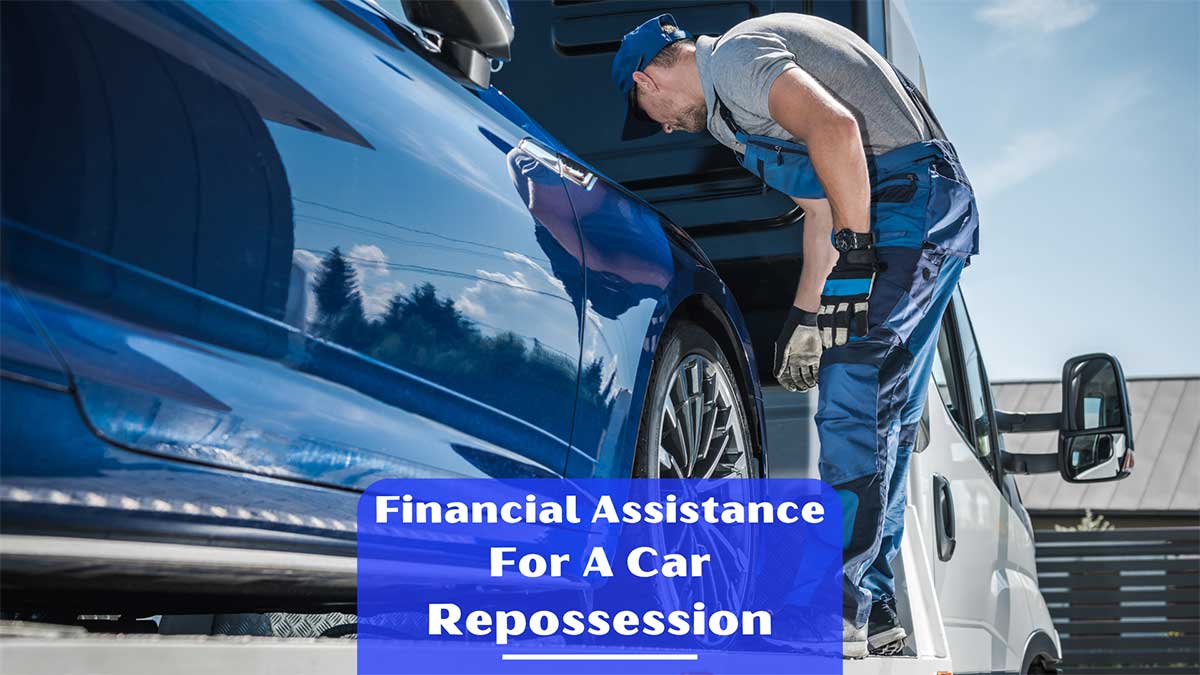
Car repossession is a serious financial matter that can have lasting consequences. When a borrower fails to make car loan payments, the lender may take back the vehicle, a process known as repossession. The lender may then sell the vehicle to recoup their losses.
Losing a car can be a major inconvenience and can make it difficult to get to work, school, or other important appointments. It can also be difficult to get approved for another auto loan, as lenders will consider your repossession history when making a lending decision.
If you are facing financial hardship and are at risk of car repossession, there are options for financial assistance. Nonprofit organizations and government agencies offer a variety of resources, including loan modifications, payment assistance, and debt counseling.
Here are some options available for financial assistance for a car repossession:
What Happens When You Can’t Make Car Payments?
Failure to make car payments can have serious consequences, including late fees, damage to credit scores, and car repossession. Repossession can make it difficult to obtain credit in the future, and borrowers may still owe money to the lender if the car is sold for less than the remaining loan balance. In some cases, borrowers may also face legal action from the lender.
The Federal Reserve Board (FRB) regulates the US economy and oversees the banking system. The FRB sets monetary policy, impacting interest rates and credit availability. As a result, lenders may need help to offer assistance programs or charge higher interest rates for auto loans.
Lenders may offer financial assistance programs to help low-income families and individuals facing financial hardship. These programs can provide much-needed relief to borrowers struggling to repay their car loans.
Some of the most common financial assistance programs offered by lenders include:
- Loan modifications: This process allows borrowers to renegotiate their loan terms, such as the interest rate or monthly payment amount. This can make the loan more affordable and help borrowers avoid default.
- Forbearance: This is a temporary suspension of loan payments. This can be a helpful option for borrowers experiencing temporary financial hardship, such as a job loss or medical emergency.
- Payment plans: This structured plan allows borrowers to make smaller monthly payments over a longer period. This can be a helpful option for borrowers who cannot afford their current monthly payments.
- Hardship programs: These programs are designed to help borrowers facing a financial emergency. These programs may provide borrowers with financial assistance, such as grants or loans, to help them make their car loan payments.
You might also be interested in reading: Free Car Grants For Single Moms in 2023
Avoiding Legal Trouble Through Repossession
If you are facing car repossession, it is essential to understand your legal rights and options. Car repossession can significantly impact your financial future, so it is important to seek legal counsel as soon as possible.
A lawyer specializing in consumer law or bankruptcy can help you navigate repossession and protect your rights. A lawyer can:
When choosing a lawyer, it is important to consider factors such as experience, expertise, and fees. Look for a lawyer with experience in handling car repossession cases and who is familiar with the laws and regulations that apply to your situation. It would be best if you also asked about the lawyer’s fees and billing practices so that you understand what you will be paying.
Getting legal help can be important in protecting your rights and avoiding further financial hardship. If you are facing car repossession, do not hesitate to contact a lawyer for assistance.
How Do You Avoid Car Repossession?
Making regular and timely car payments is the best way to avoid repossession. However, if you are struggling to make your payments, there are steps you can take to avoid repossession and keep your vehicle.
- Contact your lender. Your lender may be willing to work with you to set up a payment plan or modify your loan terms to make your payments more manageable. They may also be able to offer you financial assistance.
- Seek financial assistance. Many government and nonprofit organizations offer financial assistance to individuals facing financial hardship. These organizations may be able to help you pay your car payments or provide you with a loan to help you sell your car.
- 3. Sell your car. If you cannot make your car payments and do not want to risk repossession, you may want to consider selling your car. This will allow you to pay off your loan and avoid the negative consequences of repossession.
It is important to act quickly if you are struggling to make your car payments. The sooner you take action, the more likely you are to avoid repossession and keep your vehicle.
You might also be interested in reading: How To Get A Free Government iPhone
